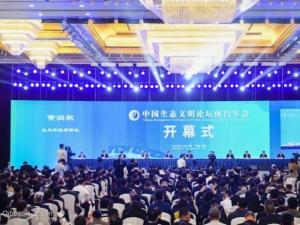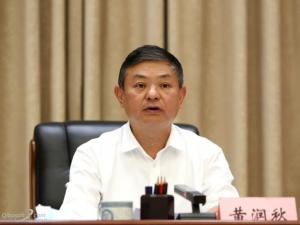AN eva lUATION OF THE CHINESE LEGAL SYSTEM(二)
|
es only stressed the purpose of environmental protection. One typical example is Basic Law on Public Nuisance Countermeasures issued by Japan in 1967. Its article 1(1) reads, “This law is to define the responsibilities on public hazard control of enterprises, state, and local institutions, and determine the basic countermeasures to realize the goal of protecting national fitness and maintaining living environment.” The environmental legislation of the Federal Republic of Germany, Korea and Britain stressed the same purpose as well.3 The U.S. proposed earlier the binary purposes of environmental law. 2 Fernando Dias de Avila Pires, Luiz Carlos Mior & Vilênia Porto Aguiar et al., The Concept of Sustainable Development Revisited, 5 Foun. O. Sci. 261, 268 (2000). 3 For example, article 1 of German Federal Pollution Control Act provides: “The objective is to protect human beings, animals, plants and other creatures from the degenerating environment (the harms from the permitted facilities and significant adverse), and to prevent these harms.” The 1977 Environmental Conservation Act aims to prevent air, water, soil, noise, malodor pollution. These belong to unary purpose, quoted from “The Purpose of Environmental Legislation, the Idea and Value of Environmental Legislation.” 106 FRONTIERS OF LAW IN CHINA [Vol. 8: 103 Article 1 of National Environmental Policy Act of 1969 reads, “The purposes of this Act are: To declare a national policy which will encourage productive and enjoyable harmony between man and his environment; to promote efforts which will prevent or eliminate damage to the environment and biosphere and stimulate the health and welfare of man; to enrich the understanding of the ecological systems and natural resources important to the Nation; and to establish a Council on Environmental Quality.” The Environmental Protection Law of the People’s Republic of China was initially proposed in 1979, and officially ratified in 1989. Article 1 reads: “This law is formulated for the purpose of protecting and improving people’s environment and the ecological environment, preventing and controlling pollution and other public hazards, safeguarding human health and facilitating the development of socialist modernization.” This provision is similar to the binary purposes of the U.S. Environmental Policy Act, and is taken as a more coherent approach to the idea of sustainable development in Chinese academic circles.4 The Rio Declaration of 1992 marks the universal acceptance of sustainable development in the international community. The purpose of environmental legislation is to tend to binary and plural objectives. Take Canadian Environmental Protection Act as an example. It states, “It is declared that the protection of the environment is essential to the well-being of Canadians and that the primary purpose of this Act is to contribute to sustainable development through pollution prevention.” So far, sustainable development is a universally acknowledged global strategy to steer development, and comprehensively influence environmental legislation. From the historical perspective, China has early and deep recognition of sustainable development and favorable space for growth. 4 Professor Depei Han viewed that article 1 of the Environmental Protection Law of 1989 has two objectives, i.e. the binary purposes of human health protection and economic development. Professor Shouqiu Cai maintains that the objectives of the legislation are to protect and improve people’s living conditions and ecological environment, to prevent pollution and environmental damage, and to reasonably use natural resources. Professor Ruilin Jin holds that the objectives of the legislation can be divided into direct objective and eternal development theoretically. Direct objective is to coordinate the relationship between human beings and environment. The latter includes two aspects. One is to protect human health, and the other is to maintain social and economic sustainable development. Refer to Zhiping Li, 环 境基本法立法目的探究 (A Research in the Objectives of the Environmental Protection Law), (6) 中山大学学报 (社会科学版) (Journal of Sun Yat-sen University) (Social Science Edition), 2008. 2013] CHINESE LEGAL SYSTEM ON SUSTAINABLE DEVELOPMENT 107 (2) National policy and sustainable development. Sustainable development is one of the most ancient ideas of human heritage. Matters concerning environment, resources, and population that sustainable development highlights, are considered as basic national policies in China. Basic national policy is a distinct Chinese element that stemmed from the Warring States Period. Guan Zhong (管仲), a famous politician in that period, adhered that the tax revenue policy should apply to the land resource capacity. He stressed “adherence” in his saying. As a forerunner of the Legalist School at that age, his policy was widely misunderstood by the majority.5 With the support of his emperor, Master Guan implemented his position and achieved success. Therefore, national policy contains two basic elements in China. First, it should be the long-lasting state development plans that directly relate to resources, population and security issues. Second, it might be the will of the minority decision makers for a certain period and is temporarily not accepted by the majority. Thereby, it is a compelling force that is authorized to be the law instead of a law made through the legislation process. The idea and mechanism of China’s policy is similar to the trust principle of British politics. Namely, the government has the dominant power on important issues. This power might not directly come from law, and is mostly derived from law making bodies and the trust of the public. The United Nations also stresses governments’ role in implementing sustainable development. Meanwhile, China is making economic development strategies to enable the government to play a comprehensive role in implementing sustainable development. There are mainly two economic development strategies that are connected with national policies. They are the strategy of sustainable development and the strategy of rejuvenating the nation through science and education. China is one of the earliest to implement the United Nations Agenda 21. In the preface of its Agenda 21, China declares, “Only through following the sustainable development strategy to coordinate the actions of government divisions, local governments, social classes, and all people, can we successfully realize the second and third strategic goals.” It calls for the central government’s support to achieve sustainable development at the initial stage. But drawback |
我来说两句
已有0评论 点击全部查看






